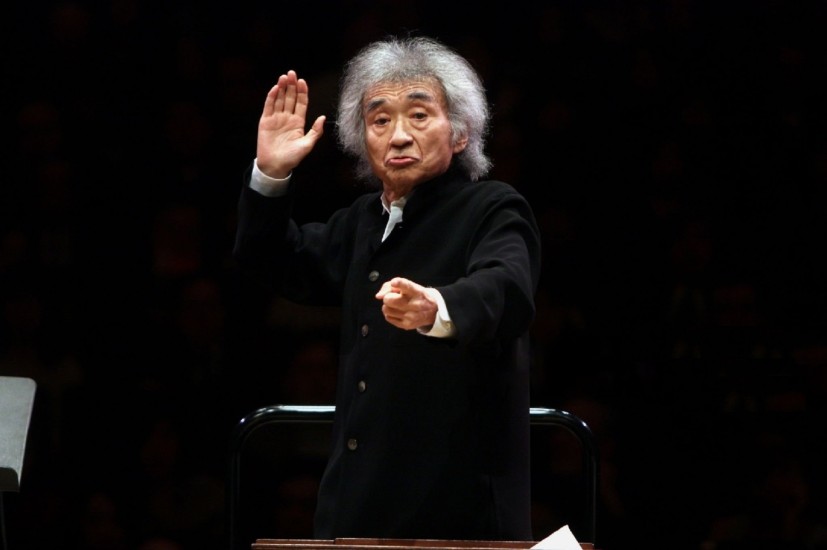Seiji Ozawa, long-standing conductor of the Boston Symphony Orchestra and the first Japanese maestro who rose to superstardom in the world of Western classical music, passed away due to heart failure last Tuesday, Feb. 6, at his home in Tokyo.
He died at 88 years old, according to Ozawa's management office, Veroza Japan, which released an announcement of his passing on Friday, Feb. 9.
Ozawa's string of health problems can be traced back to a 2010 diagnosis of esophageal cancer, which he consequently got surgery for. That said, he did not fully recover from the operation and it only exacerbated prior back problems he was suffering from.
The famed conductor was briefly hospitalized in the latter part of his life due to heart valve complications.

How Seiji Ozawa Ushered a Defining Classical Music Movement
The Japanese maestro is widely regarded as the foremost harbinger of a movement that changed the course of classical music in the West over the latter half of the last century.
Such a movement saw an influx of East Asian instrumentalists pouring into the West, which also effectively increased the value and appreciation of the classical music canon in countries like Japan, Korea, and China.
Before this development, musicians who came from Asian backgrounds were usually the target of unjust criticism despite their high technical prowess when it comes to Western classical music.
Critics who subscribe to such prejudice believe that these players lack a vital understanding of the music, which in turn makes their interpretation lack "deep" emotional expression.
That said, this backward thinking was ultimately shattered by Ozawa as he made a lasting impression during his rise in the West in the 1960s to '70s, through his indomitable hard work, endearing personality, and peerless musicianship.
Effectively the West was swayed by Ozawa's unbridled energy as a conductor and found himself standing shoulder-to-shoulder with the elites of the American orchestral world back in 1973, when he was officially given the position of music director in the esteemed Boston Symphony Orchestra.
Although Ozawa was usually reserved when it came to expressing his hardships as an Asian musician in the West, he still recalled being the subject of prejudice during a set of performances where he took on Puccini's "Tosca" in Milan's Teatro alla Scala in 1980 after concertgoers booed him.
Ozawa told this story in a conversation with his friend and famed novelist, Haruki Murakami, which was turned into the 2016 book: "Absolutely in Music."
In it, he said that the crowd at that time reacted as such due to hearing an interpretation of "Tosca" that is dissimilar to the ones "they were used to" hearing and that the Italian crowd also "the fact that an Asian conductor could come and conduct 'Tosca.'"
Although the extent of his expertise was found outside of opera, he still ventured outside of Boston to become the music director of the Vienna State Opera.
Ozawa held onto this position until 2010, before his life was overtaken by mounting health conditions, which sadly stopped the realization of his wishes to return to the concert stage.
The Japanese maestro last set foot on American soil in December 2015, when he was bestowed the Kennedy Center Honor by then-President Barack Obama. Today, he is survived by his two brothers, Mikio and Toshio Ozawa, alongside his wife, two children, and their grandson.